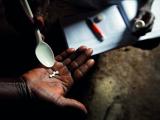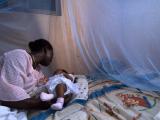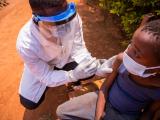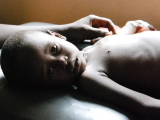Feb 20, 2013
WHO updates novel coronavirus case definition
The World Health Organization (WHO) yesterday updated its novel coronavirus (NCoV) case definition for reporting to the agency, which now includes patients with milder symptoms and those who have not traveled or lived in regions in which cases have occurred. The revised definition, which was previously updated on Jan 16, includes streamlined criteria for a probable case. The revised guidance says a probable case involves an acute respiratory infection that "may include but is not limited to cases with a history of fever or measured fever." The updated version keeps the same definition of close contact with a lab-confirmed case. Also, the WHO said it would continue to update guidance based on new information and that a revision on surveillance for NCoV is under way and will be posted as soon as possible. The latest round of revisions follows the recent detection of a British family cluster of three cases, one of which was fatal and another of which was mild, raising new questions about how the virus is spreading and the nature of the disease threat.
Feb 19 WHO revised NCoV case definition
Study: Young malaria parasites resistant to anti-malarial drug
Juvenile malaria parasites may be much more resistant to the leading malarial drug than mature forms of the parasite, Plasmodium falciparum, according to a study yesterday in Proceedings of the National Academy of Sciences. University of Melbourne researchers subjected parasites at various stages of development to short pulses of artemisinin and found that immature parasites aged 6 to 20 hours post-cell-invasion were up to 100 times less sensitive to the drug than mature parasites. They also found, paradoxically, that a subgroup of the youngest of the parasites, 2 to 4 hours post-invasion, showed hypersensitivity to the drug. "We were surprised to find that juvenile parasites were up to 100 times less sensitive to the drug than mature parasites, and that in some strains the juvenile parasites showed a particularly high degree of resistance," said lead investigator Leann Tilley, PhD, in a University of Melbourne press release. She added that the findings might help explain how resistance to artemisinin develops. "In juvenile stages the parasite's digestive system is not yet active, which explains how this stage can avoid the effects of the drug," Tilley explained. She said she hopes the findings will provide a guide for changing the timing of the drug treatment regimen and for developing longer-lasting drugs
Feb 19 Proc Natl Acad Sci abstract
Feb 18 University of Melbourne news release

















